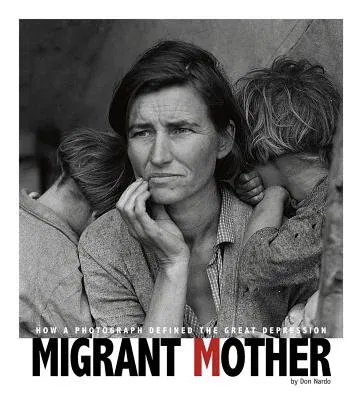Don Nardo
(Author)Migrant Mother: How a Photograph Defined the Great DepressionHardcover, 1 December 2010

Qty
1
Turbo
Ships in 2 - 3 days
In Stock
Free Delivery
Cash on Delivery
15 Days
Free Returns
Secure Checkout

Reading Age
Ages: 10-12
Grade Levels
5-7
Part of Series
Captured History
Print Length
64 pages
Language
English
Publisher
Compass Point Books
Date Published
1 Dec 2010
ISBN-10
0756543975
ISBN-13
9780756543976
Description
Product Details
Audience:
Ages: 10-12
Author:
Book Format:
Hardcover
Country of Origin:
US
Date Published:
1 December 2010
Dimensions:
26.64 x
24.1 x
0.89 cm
Educational Level:
Grade Levels: 5-7
Genre:
20th Century
ISBN-10:
0756543975
ISBN-13:
9780756543976
Language:
English
Location:
North Mankato
Pages:
64
Publisher:
Series:
Weight:
430.91 gm